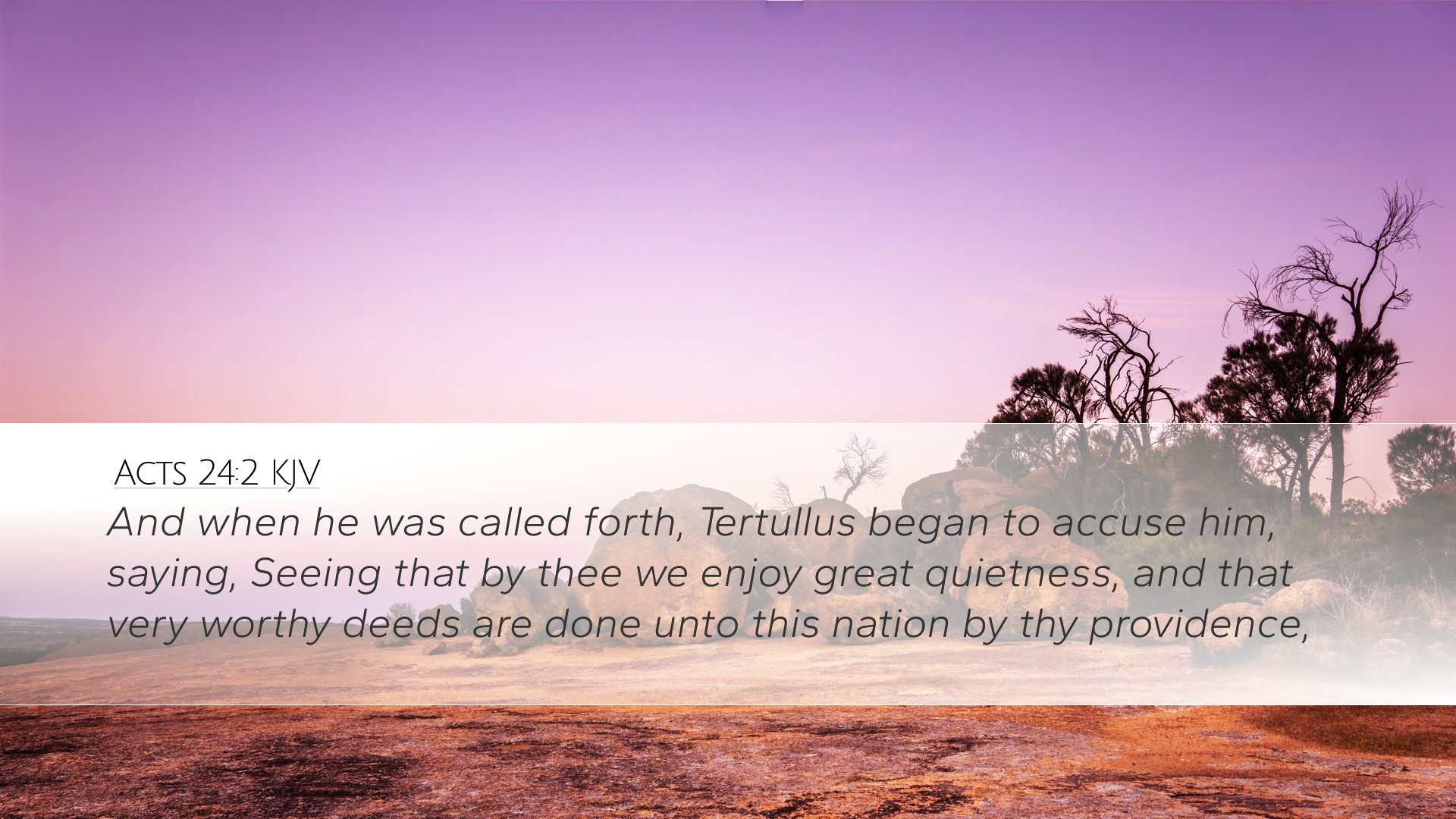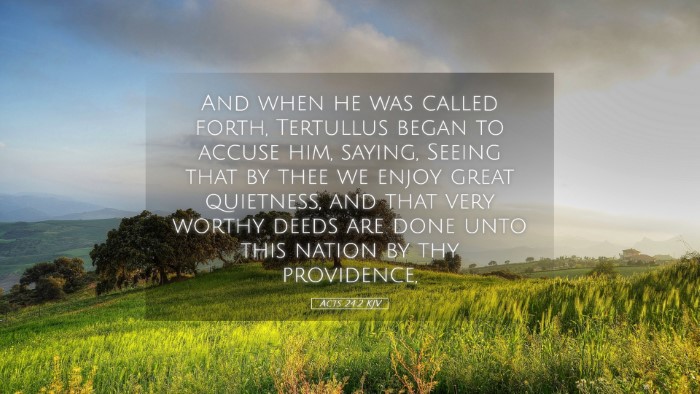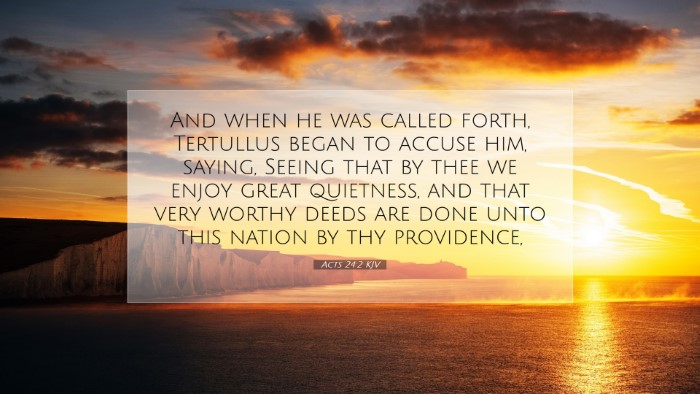Old Testament
Genesis Exodus Leviticus Numbers Deuteronomy Joshua Judges Ruth 1 Samuel 2 Samuel 1 Kings 2 Kings 1 Chronicles 2 Chronicles Ezra Nehemiah Esther Job Psalms Proverbs Ecclesiastes Song of Solomon Isaiah Jeremiah Lamentations Ezekiel Daniel Hosea Joel Amos Obadiah Jonah Micah Nahum Habakkuk Zephaniah Haggai Zechariah MalachiActs 24:2
Acts 24:2 KJV
And when he was called forth, Tertullus began to accuse him, saying, Seeing that by thee we enjoy great quietness, and that very worthy deeds are done unto this nation by thy providence,
Acts 24:2 Bible Commentary
Commentary on Acts 24:2
Introduction
Acts 24:2 reveals a significant moment in the narrative of early Christianity, where Paul stands trial before Governor Felix. This verse encapsulates the tension between religious conviction and civil authority, a theme prevalent throughout Acts. In this commentary, we will draw insights from established public domain commentaries, focusing on the context, theological implications, and lessons applicable to modern readers.
Contextual Analysis
Setting the Scene
Paul's journey to Jerusalem culminates in a series of trials, and Acts 24 marks a pivotal moment as he is formally accused before Felix. The charges brought against him are politically motivated yet rooted in religious allegations, demonstrating the intersection of faith and governance.
Matthew Henry highlights that Paul was brought before Felix not merely for justice regarding the alleged crimes but also as a powerful testimony to the gospel amid hostility. The verse communicates the earnestness of the accusers, emphasizing the societal pressures that faced the early church.
Exegesis of Acts 24:2
The Accusation
Acts 24:2 states, "And when he was called forth, Tertullus began to accuse him, saying, 'Seeing that by thee we enjoy great quietness, and that very worthy deeds are done unto this nation by thy providence...'” Here, Tertullus, a skilled orator, represents the high priest and the Jewish council. His approach is deliberate and laden with flattery, which is a rhetorical strategy often used in legal proceedings.
Albert Barnes points out that the accusations initiate with compliments to Felix, perhaps to soften the ground for the ensuing accusations against Paul. This technique reveals the manipulative nature of the proceedings and the lengths to which the Jewish leadership would go to silence the gospel.
The Theological Implications
Faith vs. Authority
The confrontation between Paul and Felix represents a broader narrative in which faith communities often find themselves at odds with prevailing authorities. Adam Clarke comments that this trial serves as a microcosm of the struggle between the church and secular power, reflecting how early believers were compelled to negotiate their faith in hostile environments.
Additionally, Acts 24:2 can be interpreted as a commentary on the nature of Christian witness. Paul’s calm and articulate defense amidst accusations illustrates the empowerment of the Holy Spirit and the call to present one's faith articulately, even under duress.
Lessons for Modern Readers
Responding to Accusations
- Understanding the Accusers: Believers today are often faced with skepticism or outright hostility. Like Paul, it is essential to understand the motivations of those who oppose the faith.
- Rhetorical Skills in Advocacy: Tertullus’ flattery highlights the importance of understanding rhetoric. As pastors and students of theology engage with society, it is vital to communicate the truth of the Gospel effectively.
- Embracing the Holy Spirit's Empowerment: Paul’s example encourages modern believers to rely on the Holy Spirit for wisdom and boldness in situations where faith is challenged.
Conclusion
Acts 24:2 serves not only as a historical account but as a profound teaching moment for all readers. The interplay between authority and faith underscores the need for believers to navigate their spiritual journeys with discernment and wisdom. As we engage with the complexities of faith in our modern age, the examples set forth in this passage and the insights from respected commentators provide timeless lessons that resonate deeply with pastors, students, theologians, and scholars.
Final Thoughts
The resilience of Paul amidst accusations reminds us that the truth of the Gospel must prevail regardless of circumstances. Acts 24:2 calls the Church today to stand firm in faith, uphold truth, and participate in society while being ambassadors of the Kingdom of God.


